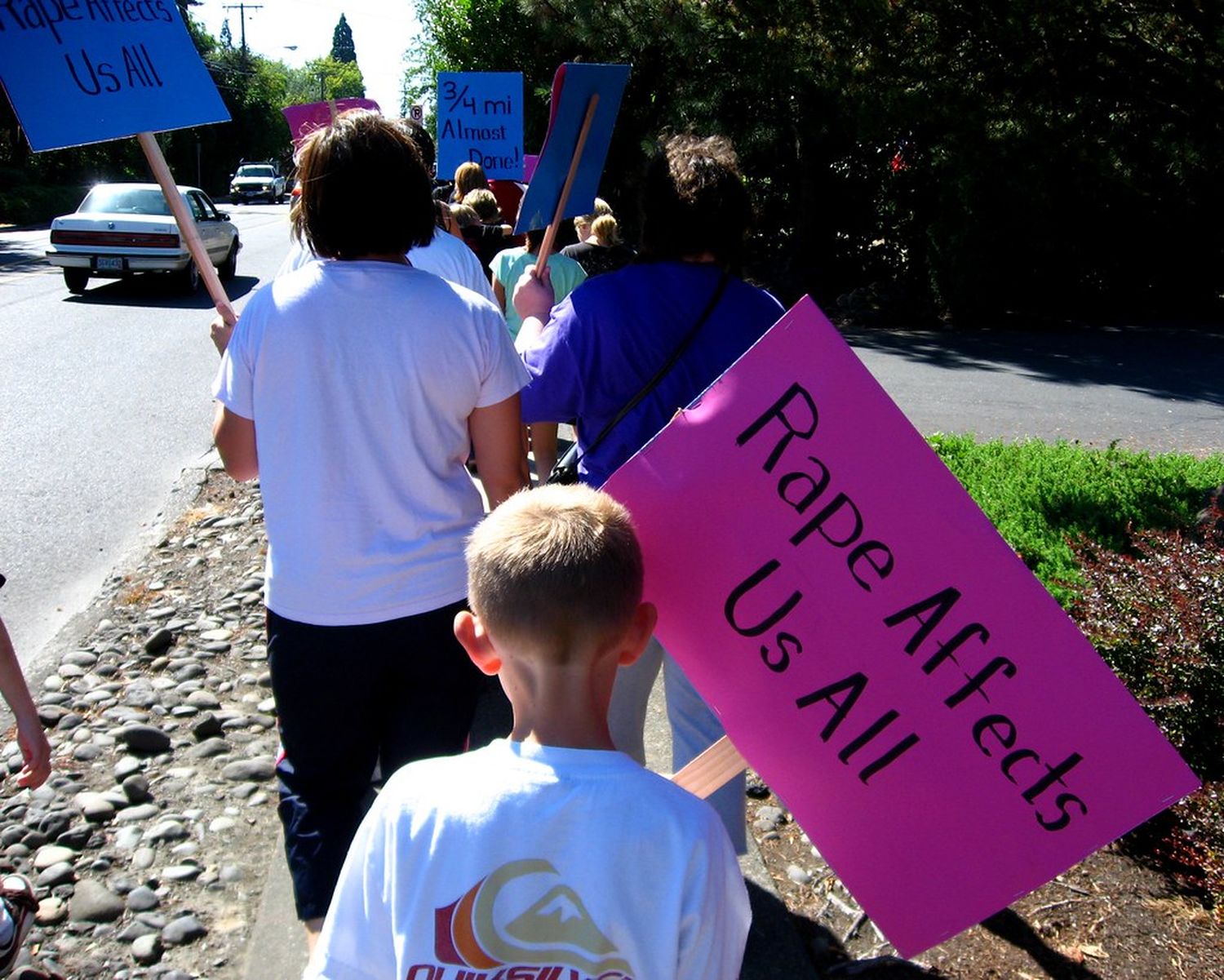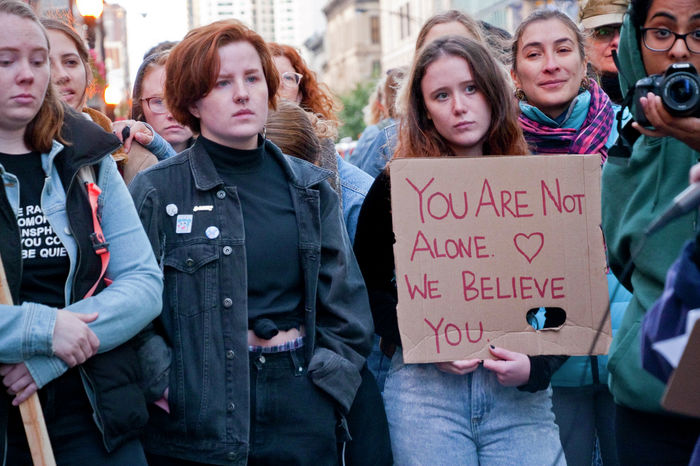Content note: This article contains detailed discussion of sexual assault.
For those fortunate enough not to have engaged with Cambridge’s student complaints procedures, OSCCA stands for Office of Student Conduct, Complaints, and Appeals. I, like many others, hoped OSCCA would protect me and keep me safe after being sexually assaulted; I hoped reporting my experience would help ‘break the silence’ and facilitate justice. I was wrong and after sitting down with a fellow survivor, Charli, I realised my atrocious experiences of OSCCA were not isolated incidents — they spoke to systemic failures.
During our interview, we shared an awful sense of solidarity; it was validating to know we weren’t the only ones traumatised by the university’s reporting system, but we wished this wasn’t the case. Afterall, you hope your trauma — from the assault and experiences with OSCCA — are exceptions, one-offs, and that Cambridge do truly wish to protect its entire community as it states in its safeguarding statement. But those who have had the misfortune of engaging with OSCCA will know this is not the case. My discussion with Charli displayed in sharp relief that OSCCA is systematically designed to protect abusers and further harm survivors.
“the reporting process ended up being “as traumatising — if not more so — as the assault itself” ”
Charil reported her assault to OSCCA in the summer of 2020, after discovering her abuser had assaulted several others within the Cambridge community. This revelation demonstrated a shocking pattern of behaviour by Charli’s abuser, and adds more credence to the fact that rape and assult can and do occur in relationships. Charli had no doubt that she would report to OSCCA, hoping the process would generate justice and catharsis. However, she quickly realised neither would occur, and the reporting process ended up being “as traumatising — if not more so — as the assault itself”.
Charli noted that one of the first, of what would be many, indicators of the systemic failures of OSCCA was the lack of transparency about the cost of the process. After a year of fighting she felt that reporting to OSCCA cost everything and gave nothing. You might as well have copied and pasted our accounts of OSCCA, hence the aforementioned awful sense of solidarity. Reporting cost us our time, as there was no indication of a timeline or possible outcomes. It cost us our university experience, because the process constantly haunted us. It cost our dignity; we both endured multiple 3 hour long interviews with a total stranger (the OSCCA investigator) to describe our assaults. It cost us our sanity every time the university questioned our testimony and eventually dismissed our cases, with Charli’s deemed as ‘not in the interest of the university’! In short, we both realised that the institution we had entrusted with our safety, our lives, actively chose to harm us further.
The psychological and emotional trauma OSCCA put Charli and I through was particularly striking to reflect on. Survivors often endure self-doubt, guilt, and responsibility as a result of being assaulted. However, these internal struggles were exacerbated by the university’s procedures. Charli commented that the university “treated us more and more like liars” and as the process went on (over a year) “you start to feel like one.” We both felt that the university gaslighted us into believing we were lying or that we were at fault for the assault. For the uninitiated, gaslighting is the act of forcing a person to question their reality, memories, experiences, often leading them to question their sanity. The line of questioning OSCCA and the university discipline committee took to investigate undoubtedly gaslighted Charli and I, and presumably others unfortunate enough to experience the process. We encountered questions such as “was this sexual activity usual in your relationship?”, “did you lock the door?”; we might as well have been asked “what were you wearing?”. These questions smack of slut-shaming ideology and ignorance to survivor trauma, and yet they came from university’s ‘trained persons’ tasked with protecting the Cambridge community.
“survivors [have] been dismissed by the university’s dangerous ineptitude”
This inadequacy wasn’t just negligence or ignorance, it displayed a blatant denial towards the sexual assault epidemic thriving under the university’s watch. In Cambridge’s Breaking the Silence video (2017), Dr Mark Wormald, Secretary of the Senior Tutors’ Committee, stated: “no matter how brilliant you are [...] nobody has the right to act in such a way that the person who is on the receiving end of that act, or comment, or behaviour feels unsafe”. In the same video Professor Stephen Toope, Vice-Chancellor, commented: “if this campaign works there will be more reporting. We can’t be uncomfortable with that, it is a necessary consequence of bringing these cases to light”. Charli expressed how hollow these words were in light of her experience with OSCCA. She highlighted the blatant contradiction in the university’s messaging, suggesting that if they truly anticipated more cases to be reported, why did they hire a single SAHA (Sexual Assault and Harassment Advisor) and a single OSCCA investigator?
Clearly, the university failed to equip themselves to address the eventuality predicted. If Cambridge actually believed that no one is ‘brilliant’ enough to evade consequences for their actions, then why have only 2 cases been upheld by the disciplinary committee? These questions reflect just an ounce of the frustration Charli and I felt (and continue to feel) as survivors who have been dismissed by the university’s dangerous ineptitude. Charli stated how she feels crazy — a feeling I strongly relate to — because she recognises the obvious mismatch between the university’s words and actions. And what’s worse, the university doesn’t seem to care about this blatant contradiction.
These dilemmas demonstrate how dangerous hope is for a survivor. Charli suggested that “hope doesn’t by itself achieve anything,” as systems and people guiding them need to nurture and sustain it to produce consequences and justice. The university doesn’t do this. Charli noted how OSCCA used our hope in the system, in the university, in the people obliged to protect us and “[held it] like an axe over our heads”. We did everything we were supposed to do, we ‘broke the silence’ and were “told to shut up again”; our “hope was shattered and thrown back in your face”. Charli was so devastated by the system she said she “couldn’t in good faith recommend it” to another survivor who recently came to her without knowledge of her history. This response painfully demonstrates that unless the university seriously rethink and rebuild its reporting and disciplinary procedures, more and more survivors will have their trauma ignored and exacerbated by an institution obligated to protect them.
Since our discussion, Charli has been growing a private ‘Reforming disciplinary procedures’ Facebook network for survivors to support each other, share stories and resources, and challenge ‘the central disciplinary procedures (OSCCA) at Cambridge’. Additionally, if you are a survivor of sexual or gender-based violence and want your voice heard — anonymously or not — we encourage you to write to Varsity Opinion, as part of our ‘It’s About Time’ initiative.
Survivors of gender-based violence must be heard, and the university community’s denial over its sexual assault epidemic needs to be shattered — it’s about time. Coming to terms with assault and trauma takes time, and feeling safe and supported in your testimony is crucial. Therefore, when it’s the right time for you to share your experiences, help reform Cambridge’s reporting procedure, or simply feel a sense of relief that your story is out there, Opinion’s ‘It’s About Time’ series is a platform for survivors. Cambridge Rape Crisis Centre and the University Counselling Service also feature resources for survivors.


